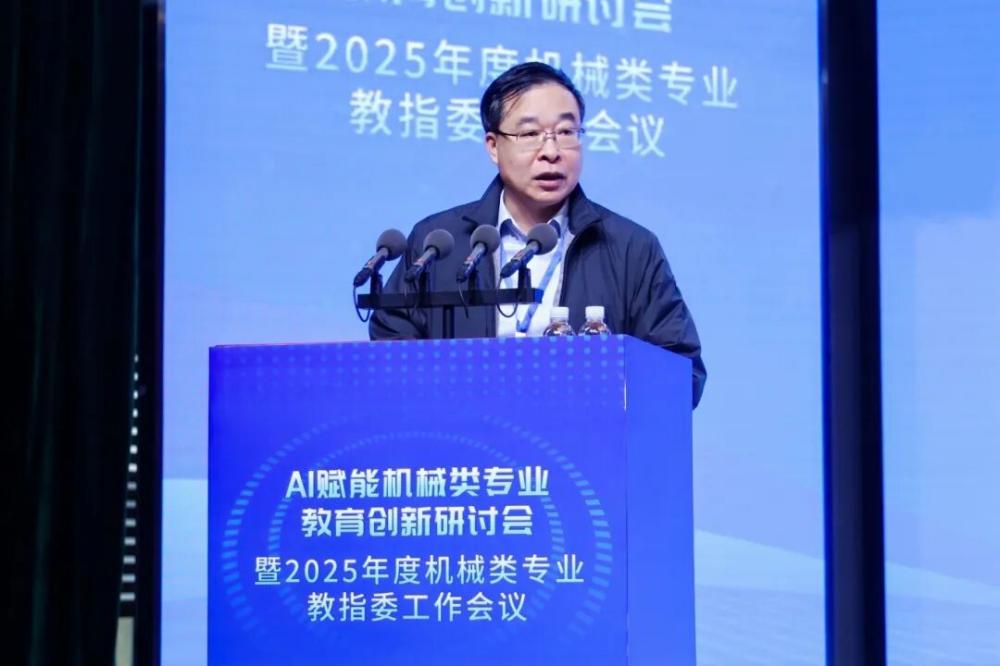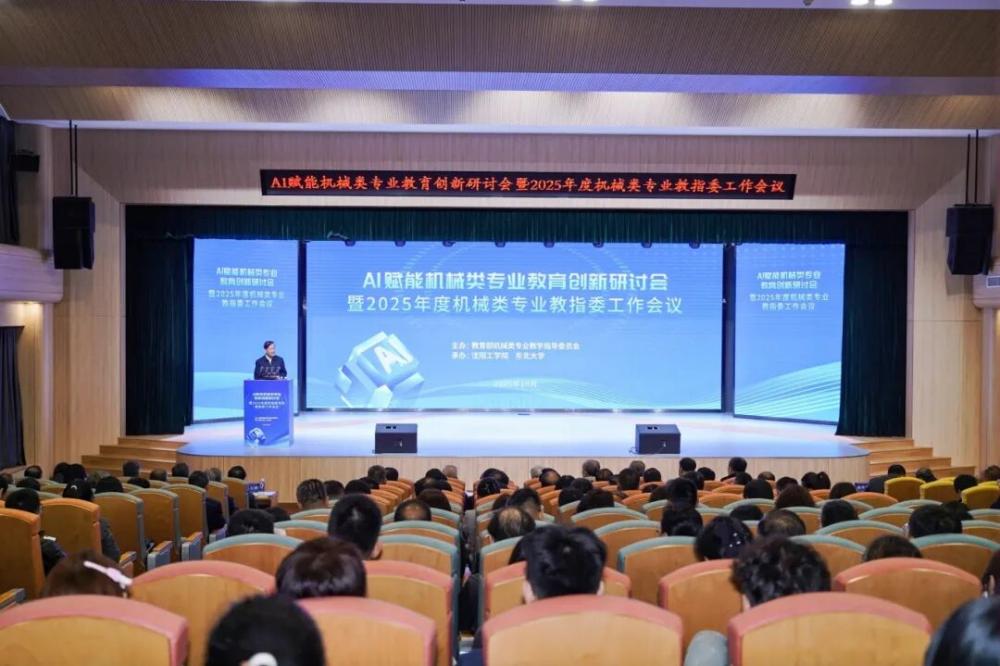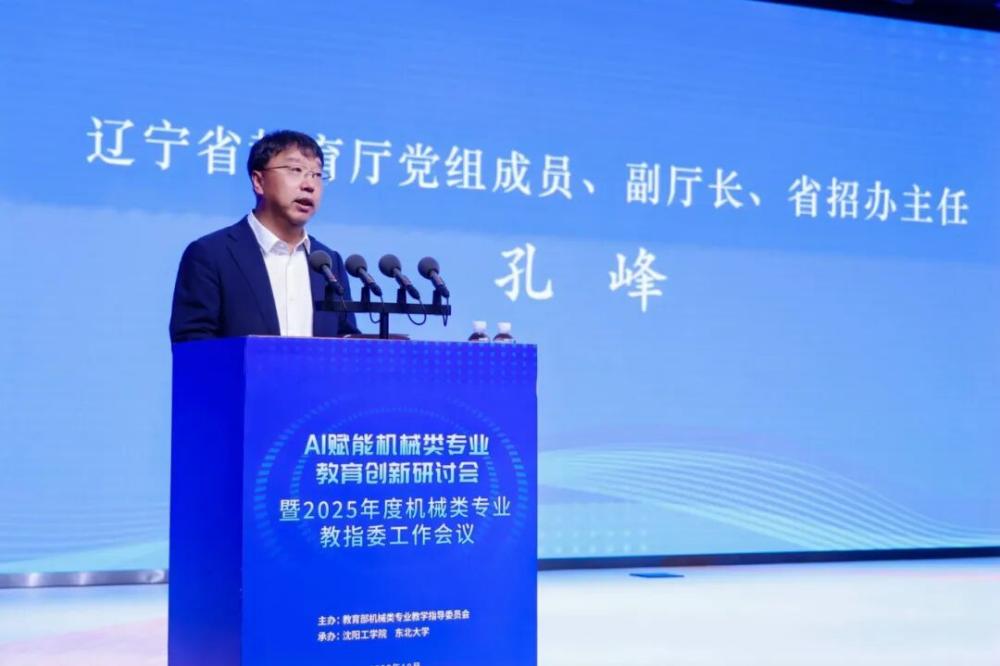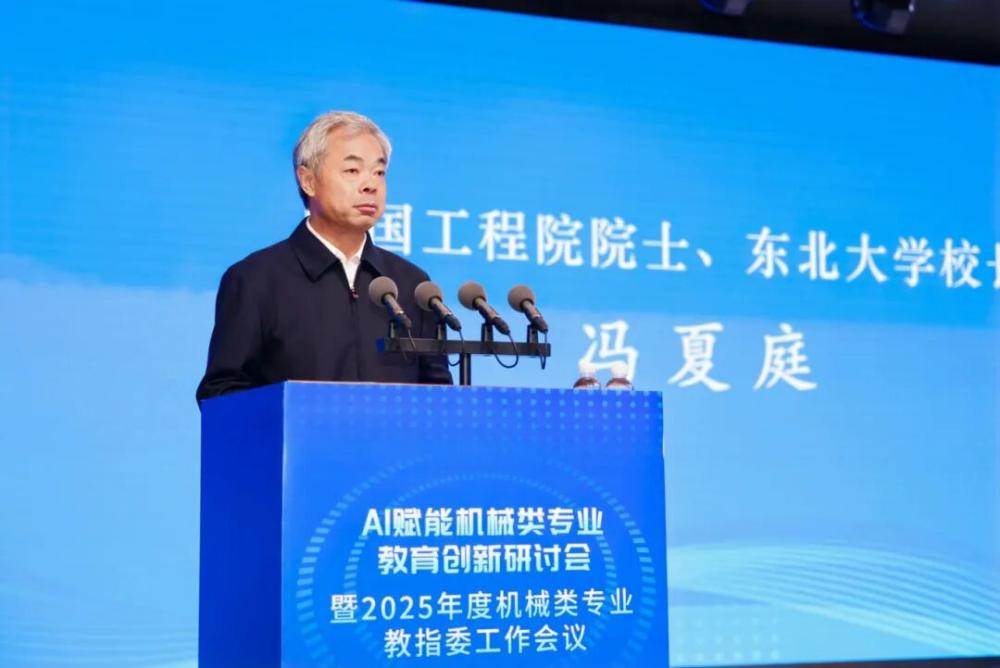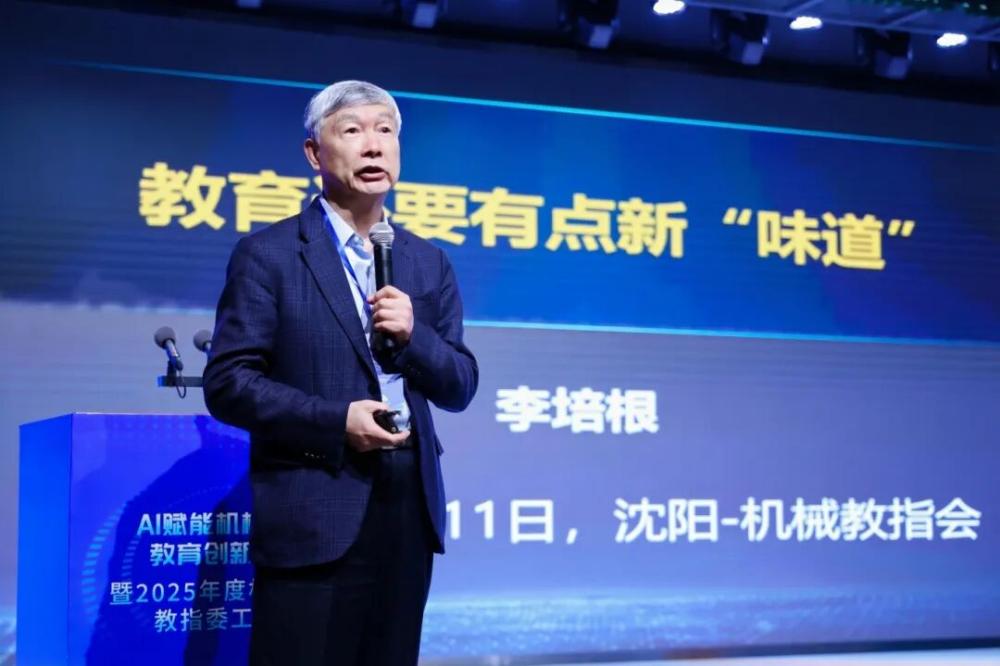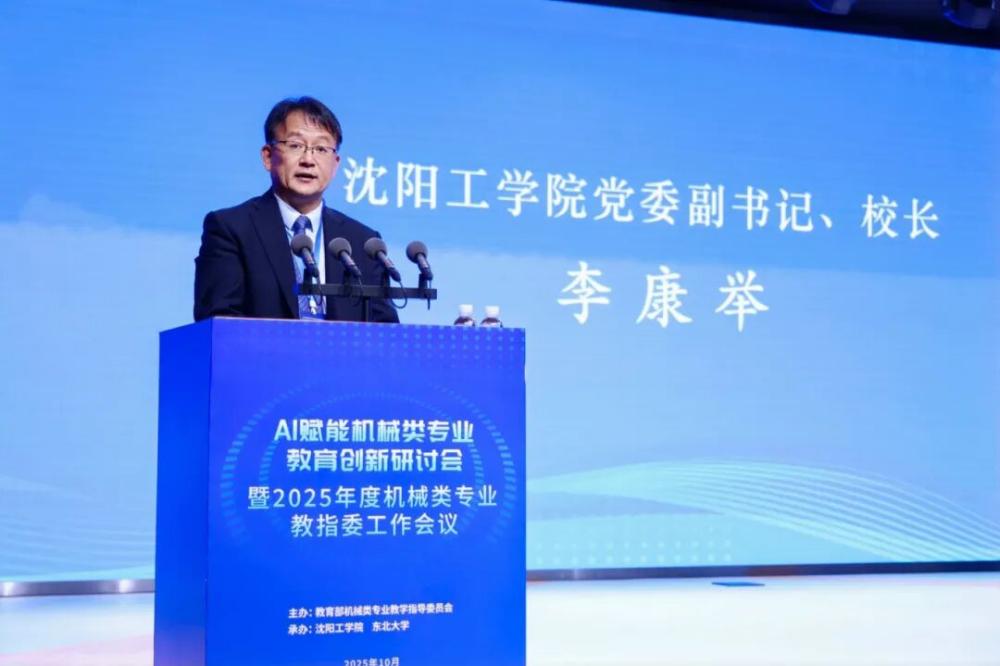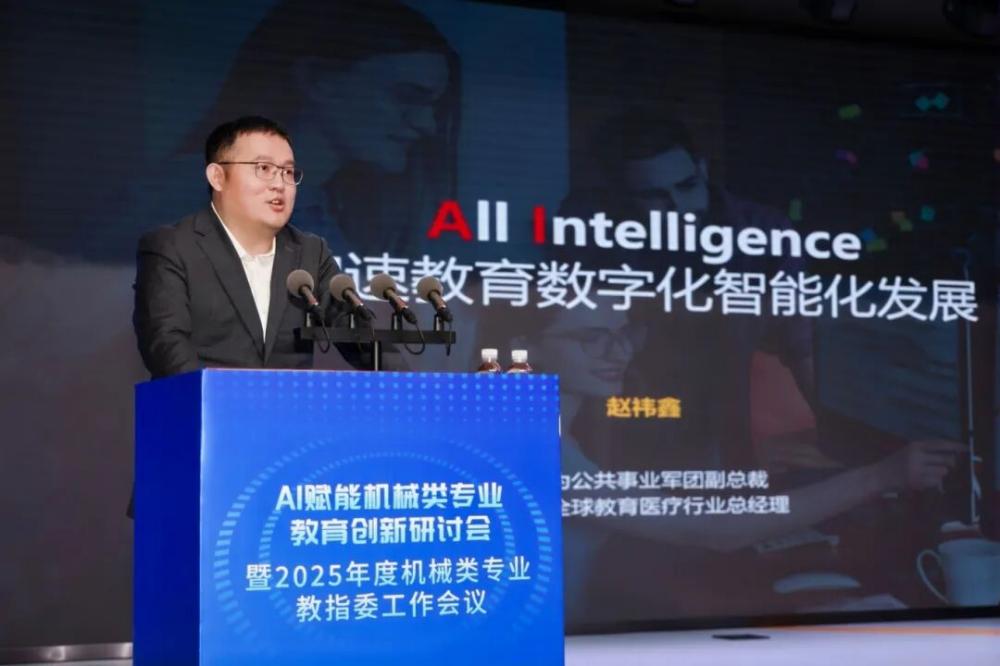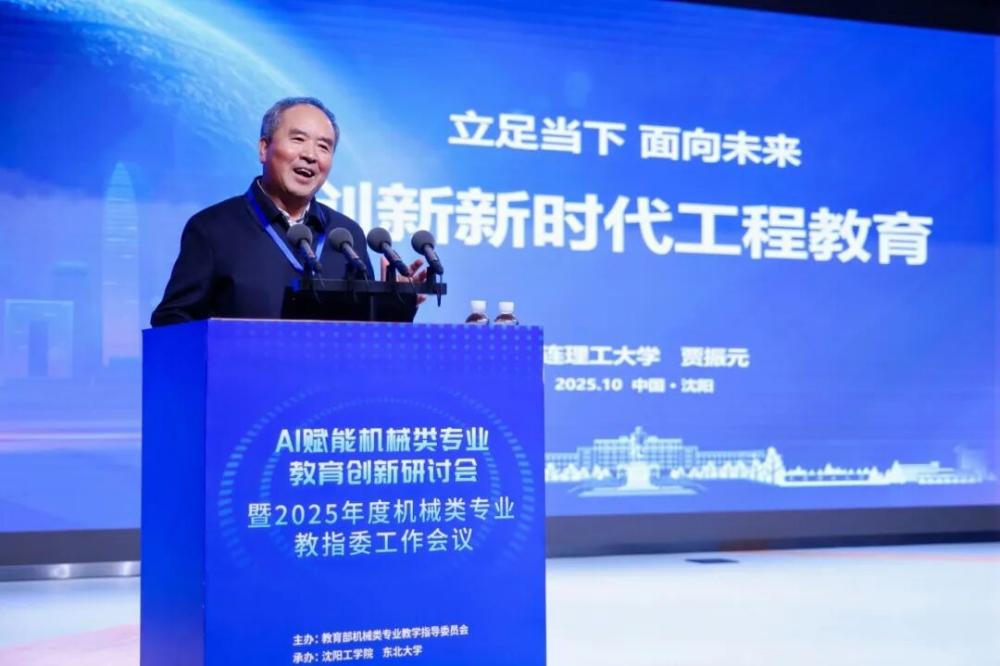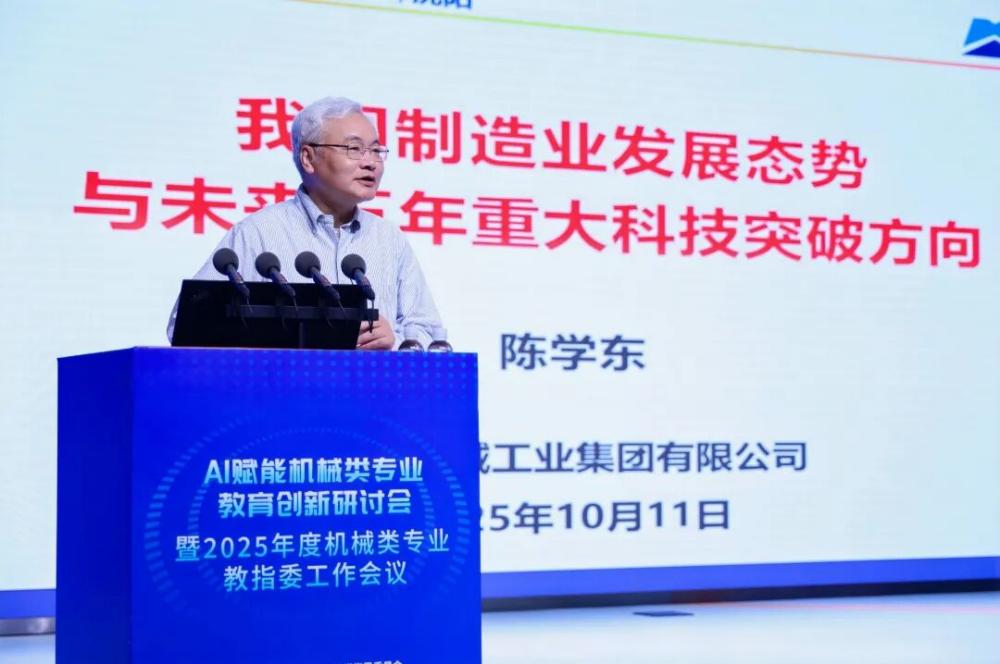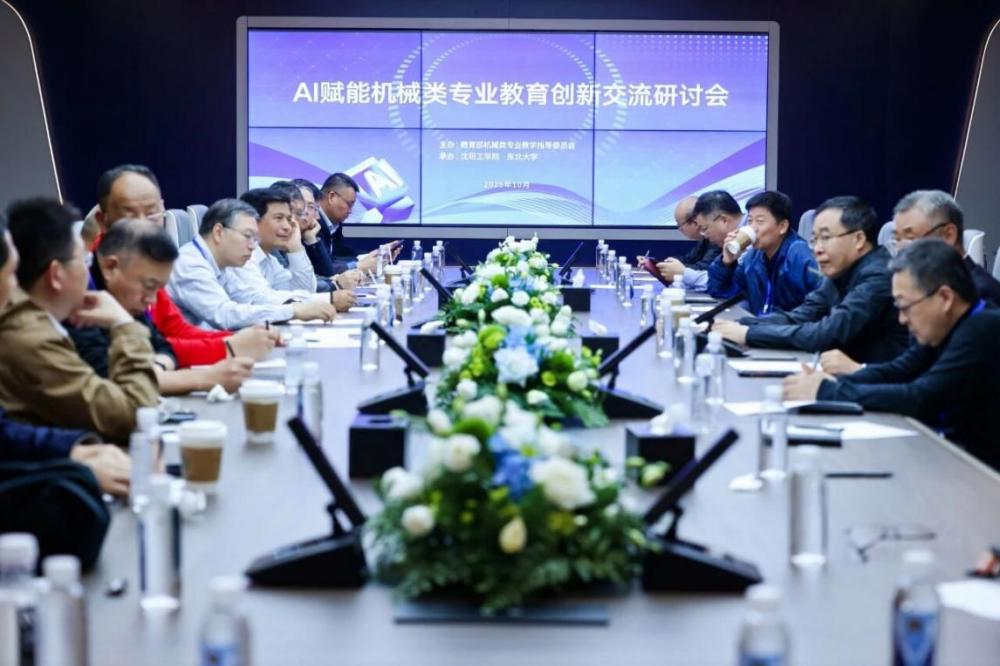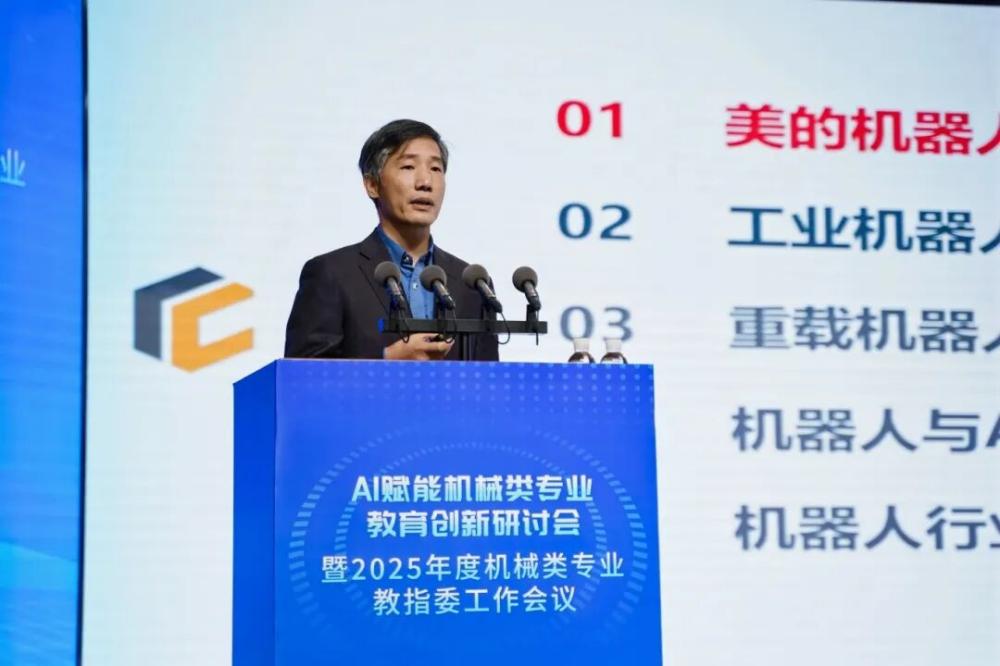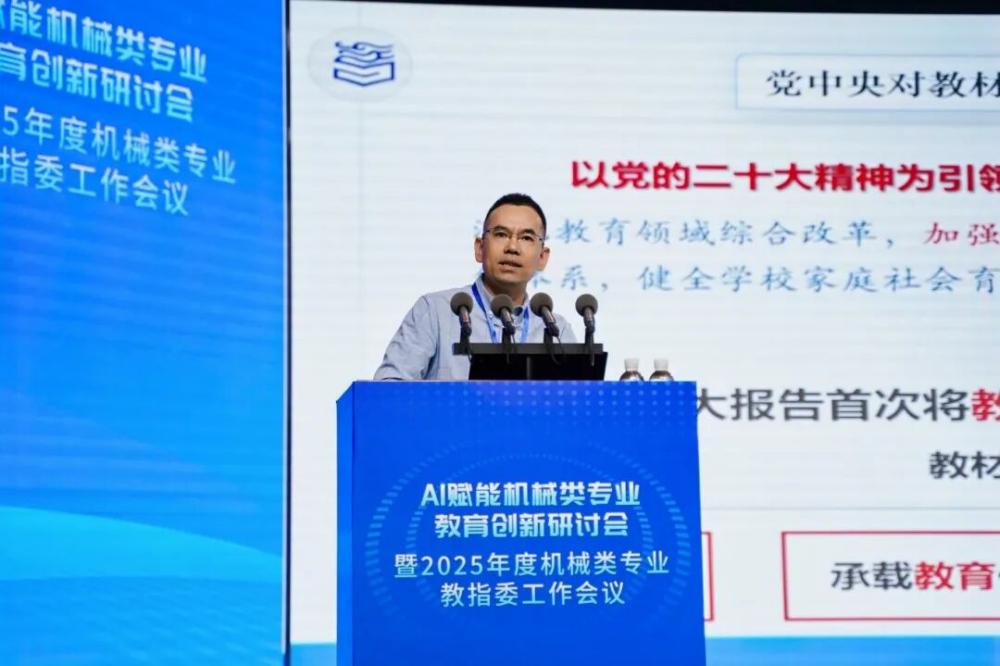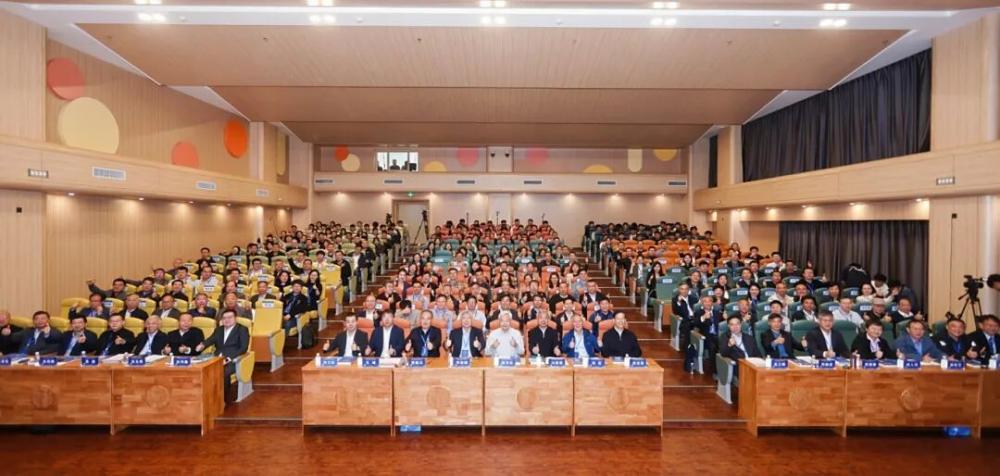On October 11, the "Symposium on AI-Enabled Innovation in Mechanical Engineering Education and the 2025 Working Meeting of the Mechanical Engineering Professional Teaching Guidance Committee" kicked off at our university. Hosted by the Mechanical Engineering Professional Teaching Guidance Committee of the Ministry of Education, the event was co-organized by our university and Northeastern University. Six academicians – Li Peigen, Chen Xuedong, Duan Baoyan, Jia Zhenyuan, Feng Xiating, and Liu Hong – were in attendance, along with experts from nearly 50 universities including Tsinghua University and Zhejiang University, and representatives from industry leaders such as Huawei and Midea. The gathering focused on deepening the integration of AI and mechanical engineering education, as well as innovating talent cultivation models, aiming to find solutions for talent development in the intelligent manufacturing sector. Kong Feng, Member of the Party Leadership Group and Vice Director of the Liaoning Provincial Department of Education, Liu Weidong, Member of the Party Leadership Group and Vice Chairman of the Liaoning Association for Science and Technology, Hu Xiaomei, Secretary of the Party Committee of our university, and Li Kangju, President of our university, also participated in the meeting.
The opening ceremony was held at the Xinghe Theater of our university. In his speech, Kong Feng emphasized that General Secretary Xi Jinping has identified artificial intelligence as a strategic technology leading the technological revolution and industrial transformation. At the national level, initiatives such as the "Artificial Intelligence + Higher Education" special action have provided guidance for integrating AI with mechanical engineering education. As an important industrial base in China ("the eldest son of industry"), Liaoning is in a critical period of transitioning from "traditional manufacturing" to "intelligent manufacturing." It has always followed national strategic steps, taking AI-enabled mechanical engineering education as a key driver for industrial upgrading and revitalization. Documents including the Implementation Plan for Accelerating the Development of New Quality Productive Forces in Liaoning and Liaoning Education Modernization 2035 have clearly defined the direction for integrating AI with mechanical engineering programs. Kong Feng noted that promoting the deep integration of AI and mechanical engineering education is not only an educational reform but also a strategic move crucial to Liaoning’s future industrial competitiveness. He hoped academicians would provide high-level guidance on the top-level design of programs and breakthroughs in key technologies, and that members of the Teaching Guidance Committee would focus on curriculum restructuring based on university teaching practices to build a "dual-qualified" faculty team proficient in both mechanical engineering and intelligent technologies. The Liaoning Provincial Department of Education, he added, would fully provide policy and resource support to explore a development path with Liaoning characteristics and contribute more to the high-quality development of Liaoning’s manufacturing industry and the national innovation-driven development strategy.
Xi Lifeng, Vice Director of the Mechanical Engineering Professional Teaching Guidance Committee and Executive Vice President of Shanghai Jiao Tong University, stated in his speech that the committee, as the top expert guidance body for mechanical engineering education, has always been rooted in national strategies and industry needs to guide the direction of program development and teaching reform. This event combined the annual working meeting with a cutting-edge symposium, featuring rich sessions including keynote reports by experts, field visits to our university’s industrial colleges, and seminars with scholars. It aimed to build a cross-field communication platform, solve key challenges in AI-enabled mechanical engineering education, and promote precise alignment between talent cultivation and the needs of the intelligent manufacturing industry.
Speech by Li Kangju, President of Our University. On behalf of the co-organizer, Li Kangju, President of our university, extended a warm welcome to all guests. He pointed out that artificial intelligence is profoundly reshaping the talent cultivation models, knowledge systems, and practical approaches of mechanical engineering education.
As an application-oriented university, our university has made steady progress in cultivating application-oriented talents in recent years. It has deepened university-enterprise cooperation, jointly establishing modern industrial colleges with leading enterprises such as Huawei, Midea, Huazhong Numerical Control, and Shenyang Machine Tool to co-cultivate high-quality application-oriented talents, achieving high-quality employment for graduates. Two mechanical engineering programs of our university – "Mechanical Design, Manufacturing and Automation" and "Material Forming and Control Engineering" – have been approved as national first-class program construction sites. Li Kangju emphasized that the university’s reform and progress would not have been possible without the guidance and support of the Teaching Guidance Committee. Hosting this high-standard event is not only a trust in the university but also a valuable learning opportunity. The university will take this event as a new starting point for educational reform, increase support for teachers in teaching research and reform, and continuously elevate the quality of its talent cultivation.
Centered on the core theme of "AI-Enabled Mechanical Engineering Education," the conference included keynote reports, invited reports, thematic seminars, and field visits, with content combining theoretical depth and practical value. Li Peigen, Academician of the Chinese Academy of Engineering and Professor at Huazhong University of Science and Technology, delivered a report titled Education Needs a New "Flavor". He pointed out that in the AI era, engineering education must break away from the traditional "knowledge-oriented" model and shift to a "problem-oriented" approach. It should focus on cultivating students’ creative thinking and professional aesthetic taste, create diverse communication environments and platforms for students, and foster an atmosphere for their personalized development – ensuring education better meets the talent needs of the intelligent era. He stressed the need to uphold the correct direction, provide policies and an enabling environment, and allow teachers and students to give full play to their imagination and unleash their potential. Chen Xuedong, Academician of the Chinese Academy of Engineering, Member of the Party Standing Committee, Vice General Manager, and Chief Engineer of China National Machinery Industry Corporation, delivered a report titled Development Trend of China’s Manufacturing Industry and Directions for Major Technological Breakthroughs in the Next Five Years. Combining the development trend of the manufacturing industry, he clarified that mechanical engineering talents need to focus on the core needs of the industry and enhance their capabilities in technological innovation and practical application. Jia Zhenyuan, Academician of the Chinese Academy of Sciences, Deputy Secretary of the Party Committee, and President of Dalian University of Technology, delivered a report titled Innovating Engineering Education in the New Era. He proposed that engineering education must keep pace with the technological revolution and industrial transformation, and achieve precise alignment between talent cultivation and industrial needs by building a "production-teaching-research-application" collaborative education system.
The invited report session was also highlighted by remarkable insights:
Zhao Yixin, Vice President of Huawei’s Public Sector Business Group and General Manager of Huawei’s Global Education and Healthcare Industry, delivered a report titled All Intelligence: Accelerating the Digital and Intelligent Development of Education. He shared the enterprise’s practical experience in participating in educational digitalization and proposed to promote the innovation of teaching models through technological empowerment. Dr. Liu Qianjin, Director of Midea Group’s National Key Laboratory of High-End Heavy-Duty Robots (Blue Orange Laboratory), delivered a report titled Midea’s Robot Autonomation Process. He detailed Midea’s robotics development and the path to industrial robot autonomy, and analyzed the new requirements for talent capabilities posed by the development of the robotics industry.
Mao Hongbin, Deputy Director of the Engineering Division of Higher Education Press, delivered a report titled Building Original Chinese-Style Engineering Textbooks with Craftsman Spirit. He provided guidance on the construction of mechanical engineering textbooks, helping textbooks adapt to the teaching needs of the AI era.
On the same day, participants held thematic seminars focusing on two topics: "AI-Enabled Innovation in Mechanical Engineering Education" and "AI-Enabled Innovation in Industrial Design Education." They conducted in-depth discussions on curriculum design, the construction of practical platforms, and paths for industry-education integration, reaching several consensuses.
In addition, guests conducted field visits to a number of modern industrial colleges and practical teaching centers of our university, including the Huawei-Shenyang Institute of Technology Modern Industrial College, Shenyang Institute of Technology-Midea Digital Lighthouse College, and KUKA Authorized Industrial Robot College. They affirmed the university’s practice of building a practical teaching system based on industrial resources.
This conference was not only an "intellectual feast" for the integration of AI and mechanical engineering education but also built a collaborative platform linking "education, industry, and government." Participants agreed that promoting the deep integration of AI and mechanical engineering education is key to cultivating high-quality interdisciplinary talents and enhancing the competitiveness of China’s manufacturing industry. In the future, all parties will continue to deepen cooperation, jointly build a new ecosystem of "AI + Mechanical Engineering" education, and provide solid talent support for building a manufacturing power and achieving the comprehensive revitalization of Liaoning.
Translated by Basic Courses Department
